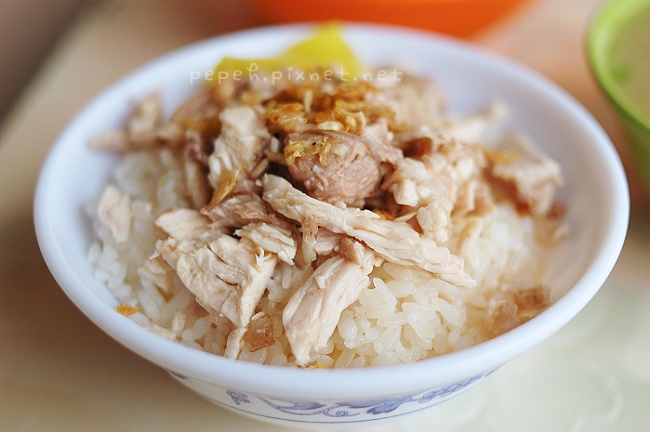Today my husband and I celebrate thirteen years of marriage. After all these years, sometimes it is still jarring to look in the mirror and be reminded we have different color skin. Not only are we a mixed race couple, we are actually of different nationalities. Because of our unique situation, people are often curious about our every day life (yes, sometimes we eat spaghetti with chopsticks) and inevitably develop some misconceptions about international marriage. To honor our thirteenth anniversary, I present to you thirteen misconceptions about people like us, and hope to clear up some confusion.
- You married an American, so you’re an American citizen now, right? This is a very common, overly optimistic view of America’s immigration process. Although it is true, as movies like “The Proposal” shows, marriage is one of the most efficient ways to acquire American citizenship, it is still a multiple-year process with strict residency requirements. We have not resided in America for more than a decade, so I am not even close to being an American citizen. Our children, however, are automatically American citizens due to their father being American – all that took was a quick trip to the embassy after birth.
- “Why don’t you learn Chinese from your wife?” Oooooooh, we get this all the time. Spouses do not make very good teachers. I’m not saying it can’t be done, I’m saying it can’t be done by us. You see, an effective pedagogy requires students to actively engage with the teacher by questioning and pushing boundaries. There’s a reason we pay people money to teach because it takes a professional level of patience typically not characteristic of spouses. In short, if I teach J Chinese, I get very angry, very quickly.
- Our children are automatically bilingual. We wish. It is well documented the many benefits to children who are multi-lingual. However, learning language, even for children, takes many intentional practices and choices parents make for them to be fully bilingual. We have heard one of the best ways to raise bilingual children is for each parent to speak one language exclusively. But because I am so comfortable speaking English, we have always spoken English as part of our family culture. Our children are therefore not fully bilingual, but know a reasonable amount of Chinese.
- Our children are smarter and prettier. Oh thanks, that’s really kind of you to say, but I’m pretty sure that isn’t a proven fact. Physical beauty is a subjective opinion, unsupported by research. However, since we are giving subjective opinions, mine is that how good looking mixed kids are really depend more on how good looking their parents are, than the fact they are mixed race. In Asia, it is common for people to say our children are smarter, but again, I still believe it is unsupported by any credible research. The only factor I find tenable is the added benefit that being bilingual allows for better learning and a broader worldview.
- Our marriage must be so much harder, having to communicate across language and culture. Marriage is hard because you have to forgive. Forgiving in Chinese and forgiving in English or any other language is equally difficult and equally rewarding. International marriages do have unique challenges because of our different backgrounds, but those challenges are different than non-international marriages, not more difficult.
- We must know everything about our spouse’s culture. Even after thirteen years, I am still discovering new aspects of American culture so deeply ingrained in my husband’s worldview and lifestyle. Culture runs so deep, and even in a relationship as intimate as marriage, one cannot possibly convey our culture to one another very quickly. It is truly a life long journey of discovery. As for J, if you expect him to know everything about my Chinese culture, he’ll point to 5,000 years of history and give you the side-eye.
- But we have learned a lot. It is hard to believe J, with his pale (sorry, babe) skin, speak fluent Chinese and know quite a lot of Chinese history and culture. In fact, I often joke he is more Chinese than me because he expends effort to understand something I simply take for granted. One does not simply spend 13 Chinese New Year celebrations with all Chinese relatives without learning a thing or two about the culture.
- We lose part of our culture of origin. This one hits a personal sore spot. Please hear this: I am not any less Chinese because I married an American. Marriage and culture are not a zero-sum game. I do not reduce myself to half a person in order to join with my husband, we are two whole selves submitting to one another in a sacred covenant. Both of us bring the entire vibrant culture from which we come from into our marriage. Yes, we do have to make compromises and difficult decisions in areas where our cultures conflict but those choices do not reduce our Chinese-ness, or American-ness, they help us mature. This is personal for me, because it is isolating when my Chinese friends see me as other-than, when I often long to belong with them.
- We live exotic lives. People are drawn to what is new and different; this is what makes other cultures interesting to us. My Chinese friends are fascinated by our Christmas celebration rituals while American friends find our Chinese customs intriguing. But to us, it’s just everyday, ordinary life. Please ask questions if you are genuinely curious about our lifestyles, but know that a constant caricature of our habits as “exotic” can be tiresome.
- You must be attracted to White Guys. Of all the international couples I know, only one of them set out to marry her spouse of a particular nationality. Almost everyone else I know never expected to end up marrying internationally. Often, we have been attracted to our own kind, only to be pleasantly surprised by the way fate has ordained someone unexpected. I certainly assumed I would marry an Asian guy, but J showed up and he was really, very cute.
- You cannot connect as deeply as couples of the same culture. I myself had this misconception growing up. I never thought I could possibly connect with somebody who didn’t understand the unique way I was raised as a TCK. But there are things in life which transcends shared background. People connect through common passion, faith, life goals, personality, philosophy, and lifestyle. I can much more connect with J than I can a Chinese dude who is a night owl, is a sports fanatic (no thanks), and do not share my faith values.
- We must enjoy hanging out with other international couples. It is fun to hang out with other mixed couples. If we ever double date with another couple, it’s always confusing to the public who goes with whom because people instinctively pair off the similar looking ones. However, I don’t think I’ve ever hung out with another couple because they were also internationally married – we’ve hung out because we like them. And we certainly like all kinds of other couples, international or not. Also, we like hanging out with singles, divorcees, unmarried partners, and other human beings in general. The ones we like.
- We are rare. Check again! With globalization, people are migrating for both work and study, and international marriages are on the rise and only projected to increase. Interestingly, and certainly pertinent to my story, Asia is where international marriages have been rising most consistently. For more statistics, check out this article from the Economist.
The Chinese say if you hold your chopsticks very close to the food you’re picking up, you will end up marrying close to home. Well, I must have held my chopsticks from very far up to have married halfway across the world.
To my husband who absolutely detests attention of any kind, for our anniversary I wrote about us on the internet.
Thank you for thirteen years of keeping our promise.


